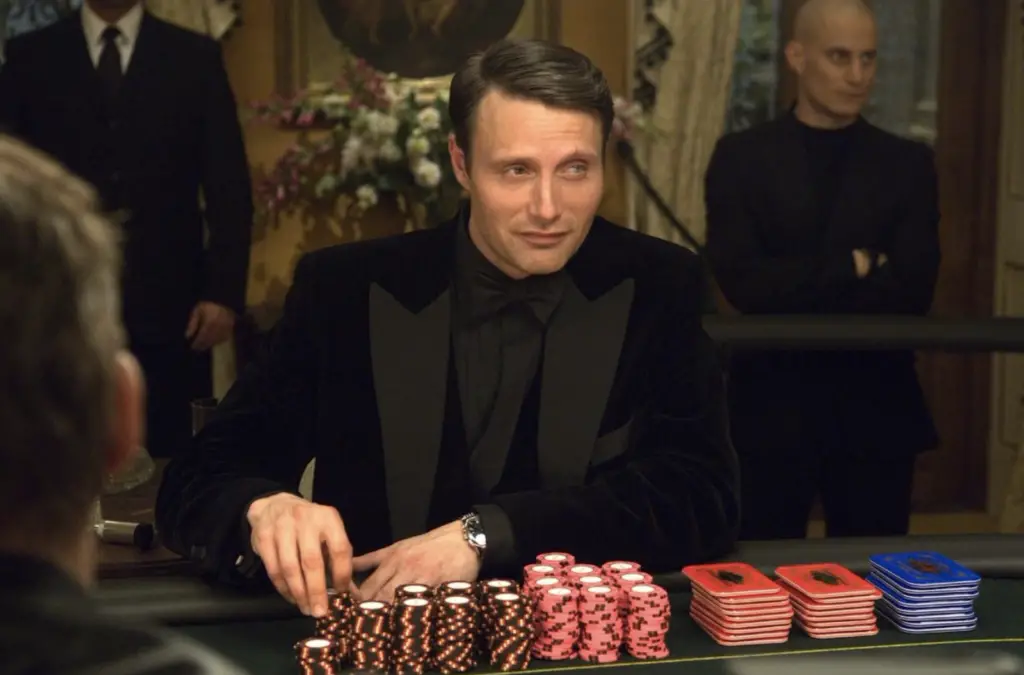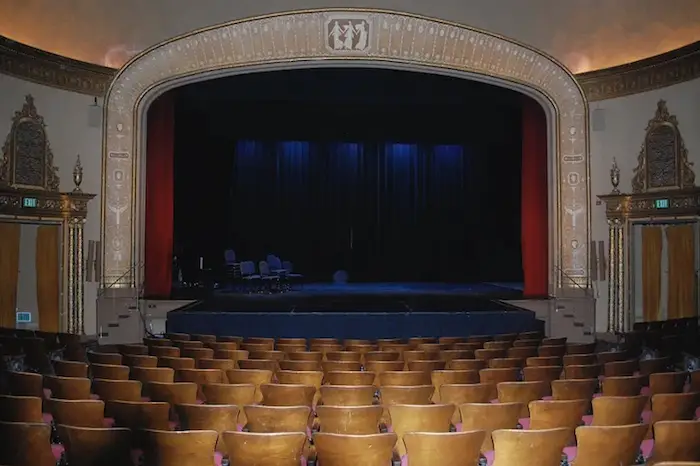
The pre-credits sequence of “No, I Have No Regrets” is perhaps the most jolting of any documentary opening. The camera is set on a stage looking out into the darkness of an audience. The curtain rises, the spotlights shine and the crush of the audience’s applause fills the soundtrack. Suddenly, there is a very abrupt cut and the camera finds Edith Piaf, visibly fragile and haggard, alone on the stage. The camera tracks around her in a semi-circular motion while the soundtrack fills with the thunderous chords of the film’s title song. And then Piaf begins to sing, her voice resonating with a power that belies her appearance. Her anthem of unapologetic living carries the weight of pride without the embellishments of arrogance or insincerity – it is a song of self-defense without self-embellishment or self-pity. “Non! Rien de rien…/ Non! Je ne regrette rien.”
Edith Piaf was arguaby the greatest popular singer of the 20th century. Her talent is even more striking in view of today’s shameful entertainment orbit, where singers need to be heavily miked (or require lip syncing) and need the distractions of endless costume changes and overheated choreography. For Piaf, all that was required was a bare stage, a microphone stand and a simple black dress – from there, her voice opened the world of raw emotions that detailed the full spectrum of the human experience. Her songs told of love, disappointment, anguish, false hope, abandonment, and the will to survive. But when Piaf performed them, they were not mere songs – they were life, brought to poetic justice with the vibrancy a woman who lived and loved too hard and too recklessly.
“No, I Have No Regrets” was a 1970 BBC-TV documentary on Piaf’s extraordinary life. It is perhaps the single greatest documentary about an entertainment figure, with a rich mixture of rare footage, insightful and frequently surprising interviews, and a soundtrack of peerless riches. The film is not very widely known today, which is a major shame since it is a stirring tribute to a legendary talent.
Edith Piaf (1915-1963) was born in poverty, abandoned by her parents in infancy and raised by her grandmother, who ran a Parisian bordello. She came to fame in Paris in the 1930s due to nightclub owner Louis Leplee, who ran a posh nightclub. Leplee’s murder in 1936 put Piaf in a negative press spotlight and nearly damaged her career, but she was svaed by businessman Raymond Asso, with whom she had a torrid affair. Asso guided her career for three years, with her star in rapid ascension thanks to his connections and management. Piaf left Asso for singer Paul Meurisse, who took her career even further. During wartime, Piaf quietly played a significant role in helping captured French soldiers escape from Nazi captivity; the extent of her heroism was not officially confirmed until many years later.
After the war, Piaf began to enjoy a wider fame when she toured Europe and the United States. American audiences were initially bewildered by the tiny (4’8″) singer and her dark ballads, but eventually her fame was solidified through a selection of songs that became global classics, including “La Vie en Rose,” “The Three Bells” and “The Poor People of Paris.” Piaf’s very public affair with boxing champ Marcel Cerdan was major news and only ended with Cerdan’s death in a 1949 plane crash. In 1951, Piaf emerged severely injured from a car accident and sank into drug and alcohol addiction to kill her physical pain. A 1952 marriage to actor Jacques Pills was unsuccessful, but a subsequent 1962 marriage to singer Theo Sarapo (who was 20 years her junior) briefly brought her the happiness and stability that eluded her throughout her life.
“No, I Have No Regrets” captures the Piaf story with an amazing selection of still photographs, newsreels and French television broadcasts. Most of the vintage footage in this film was never shown outside of France, which makes it all the more valuable for Piaf’s international fan base. Some of the footage is amusing, such as Piaf’s admittedly melodramatic press conference following Leplee’s murder and a wobbly concert duet with Sarapo (who was obviously not Piaf’s peer in the music department, requiring the star to modify her performance in order to avoid outclassing and embarrassing him). But most of it, especially Piaf in performance, is invigorating and magical.
The film also presents compelling original interviews with many of the people in Piaf’s orbit. Most notably, two of her proteges, singer/composer Charles Aznavour and actor Eddie Constantine, recall Piaf with warmth but honesty. Both men acknowledge her often difficult and emotionally needy behavior, yet they diplomatically put this in the proper context of her own hardship while acknowledging her prime influence on establishing their respective careers. Piaf’s most famous protege, singer/actor Yves Montand, is conspicuously absent as an interview subject. The film gets its revenge at Montand by making a facetious comment on his talents while showing a newsreel clip of him doing a dopey dance.
The made-for-television “No, I Have No Regrets” was not intended for theatrical release and, as far as I can tell, it never received one. The film played on several American public television stations during the 1980s and early 1990s, but then seemed to have vanished completely. It is not listed in the Internet Movie Database and is barely cited in any online biographical tribute to Piaf. A March 2001 screening of the film at the Two Boots Den of Cin in New York was a sold-out event, but the film has not been seen since.
So why is it missing? For starters, “No, I Have No Regrets” is entirely in black-and-white. Rather than switch between color contemporary interviews and vintage monochrome footage, the film takes a completely black-and-white approach. The lack of color plays against it in the minds of programmers and distributors who have a decidedly monochromatic judgment regarding films that are not in color.
There is also the question of music clearnance. The film is wall-to-wall Piaf music and the efforts in clearing the rights for home entertainment release will obviously require a great expenditure of time and money. And there is also the question of audience appreciation. Unless the audience has a love of French music, there is the strong possibility that many people today never heard of Piaf and never heard her songs.
Bootleg videos taken from a 16mm print of “No, I Have No Regrets” can be located with some difficulty – after all, it is not the most sought-after title on the market. Yet for those with a taste for the hunt and a love for great music, it is worth seeking out. “No, I Have No Regrets” is a masterwork which pays brilliant tribute to Piaf and her art.
____________________________________________________________
IMPORTANT NOTICE: The unauthorized duplication and distribution of copyright-protected material is not widely appreciated by the entertainment industry, and on occasion law enforcement personnel help boost their arrest quotas by collaring cheery cinephiles engaged in such activities. So if you are going to copy and sell bootleg videos, a word to the wise: don’t get caught. The purchase and ownership of bootleg videos, however, is perfectly legal and we think that’s just peachy! This column was brought to you by Phil Hall, a contributing editor at Film Threat and the man who knows where to get the good stuff…on video, that is.
Discuss The Bootleg Files in Back Talk>>>


Is it available at Paley?